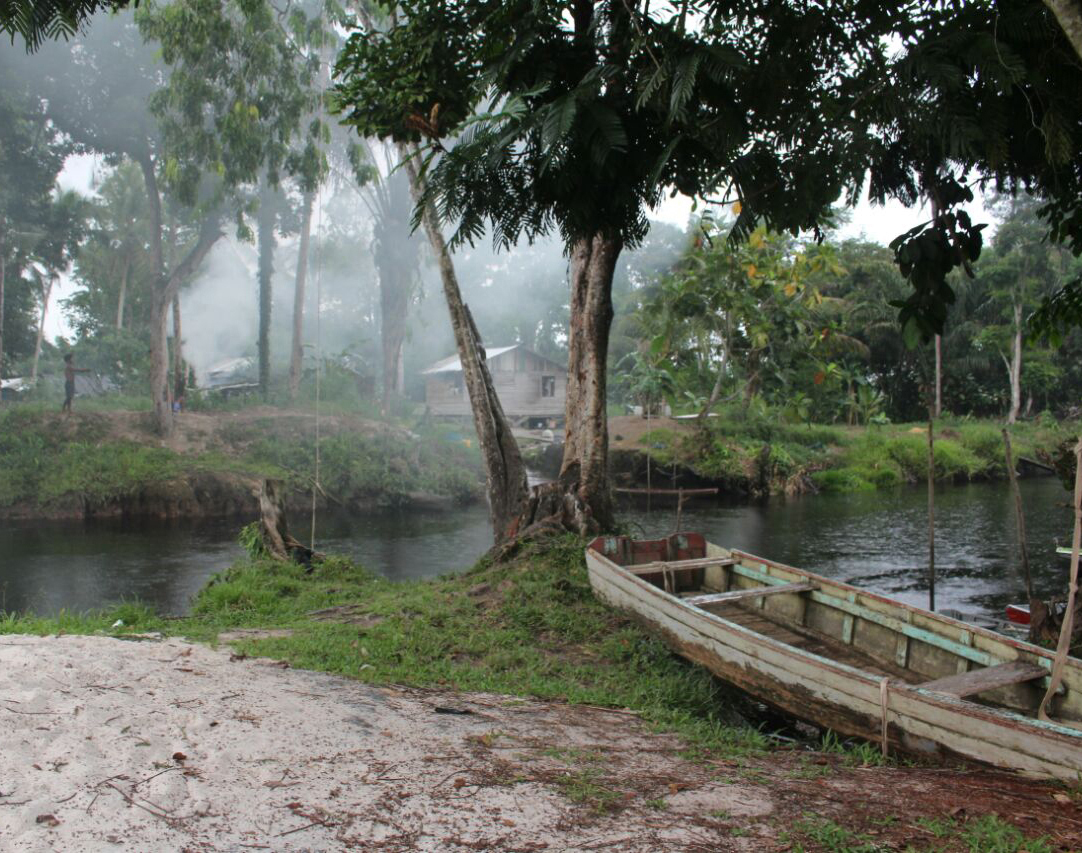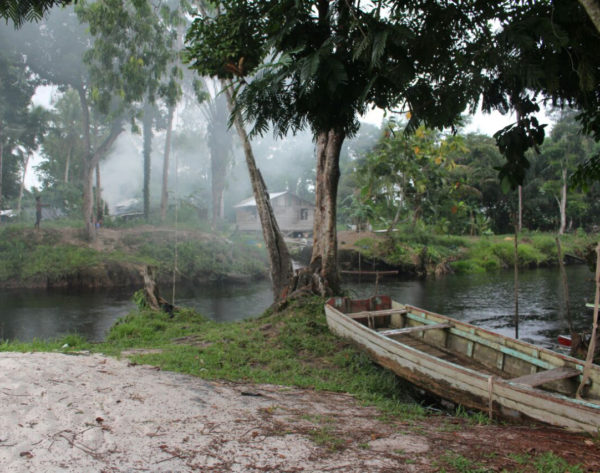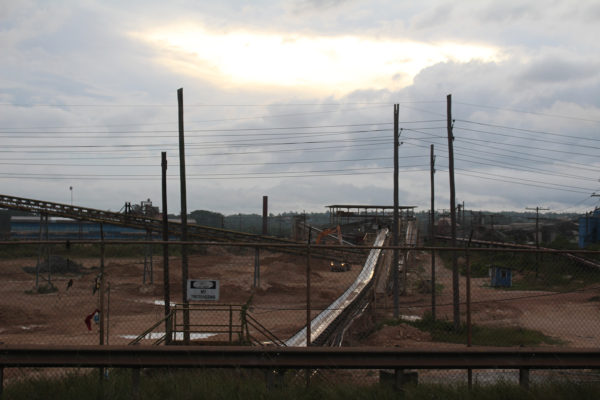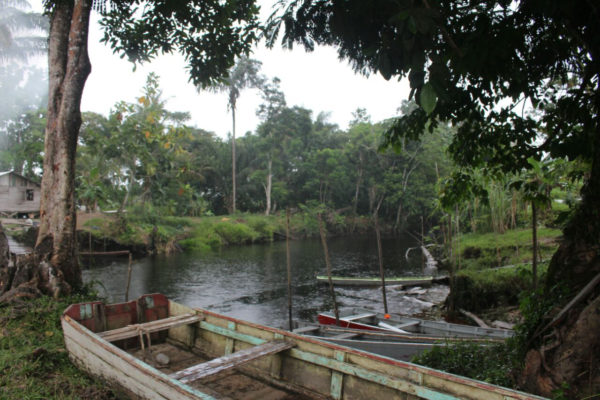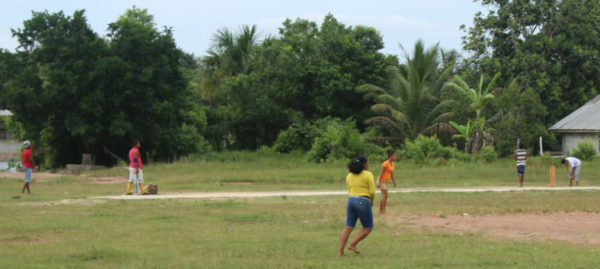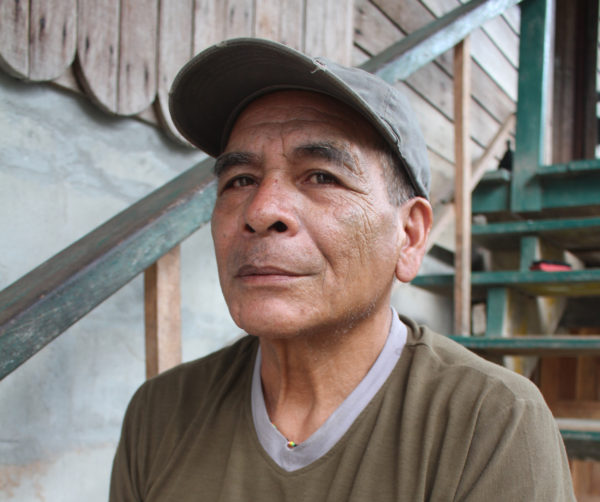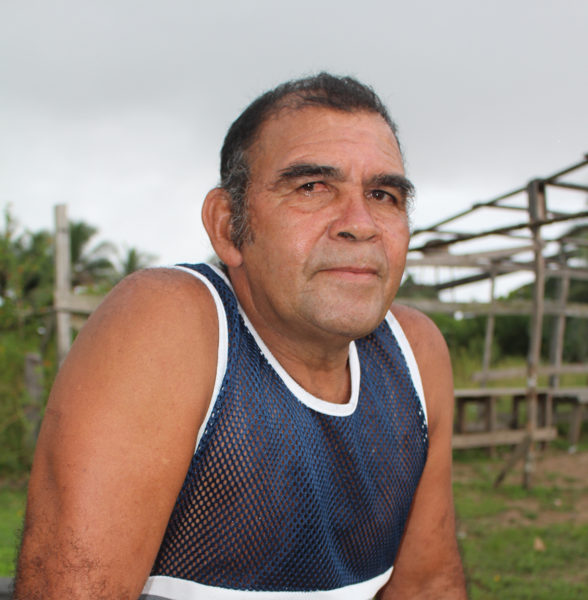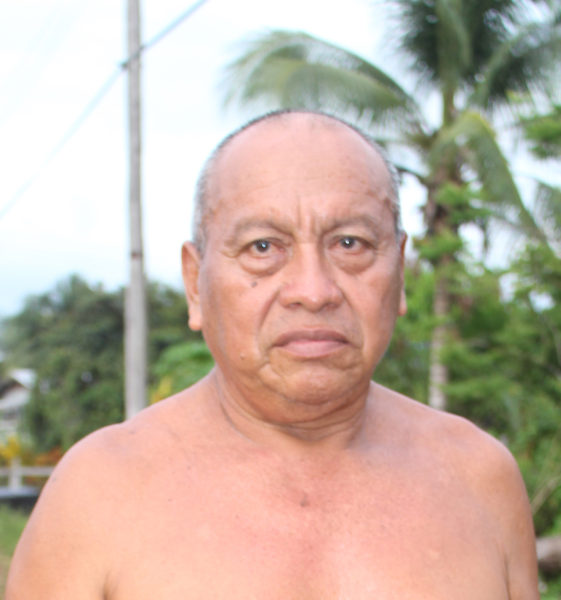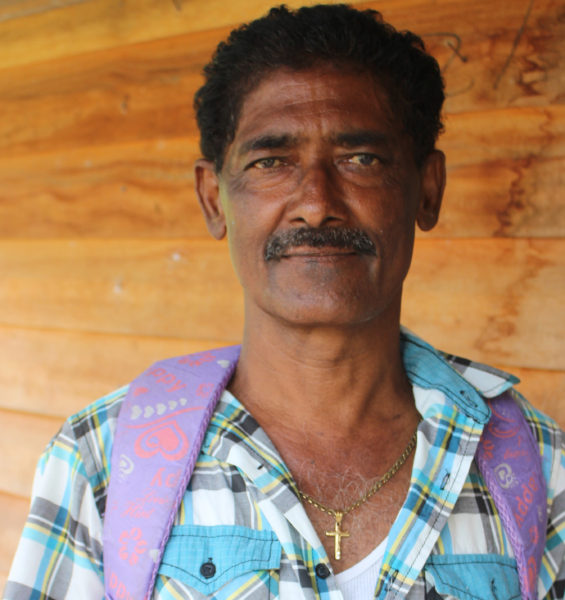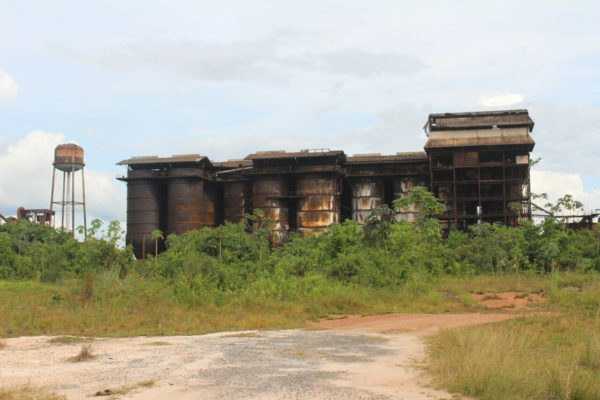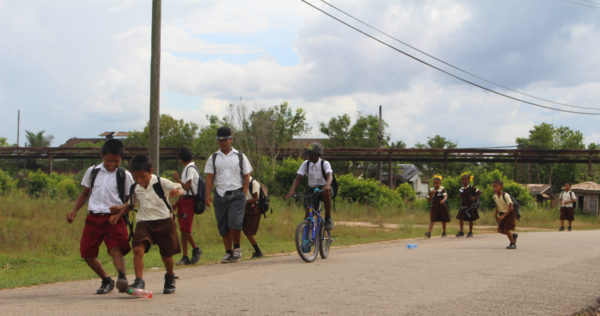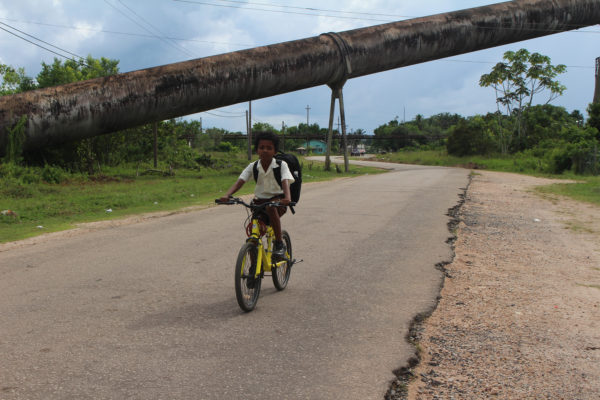After visiting Central Mackenzie, the World Beyond Georgetown continued on to Speightland, which is just past the old Aluminium Factory. The area does not have many residents; somewhere around 100 or so.
Doodnauth Danpaul moved there just last year from Clemwood.
“We move ending of July last year from Clemwood in the Demerara River,” Danpaul said. According to the man he moved to Mackenzie after his land at Clemwood became barren. Danpaul once planted suckers, citrus and ground provision which he took to Mackenzie by boat to sell weekly. However, after the land stop producing, he and his wife moved. Danpaul and his wife were among the last of over 1,000 residents to move from Clemwood. Today, only one family remains, he said. The Clemwood Government School that once met the educational needs of children of the primary and nursery level is now covered in bush.
Since his move, he finds transportation to be easier. However, Clemwood provided a greater demand so the family made a living off of their poultry animals and whatever farm produce they took to Mackenzie to sell. In Speightland, where the demand is less, things are a bit more difficult for the family. Unlike in Clemwood, Danpaul has neighbours. “The people really nice. They cooperative. When we start building, they come and mek friend and help; we didn’t had to pay them. We just cook a pot. Anything deh fuh do, you just tell one body and more than one turn up.”
The Danpauls are fitting in just fine. He said he wishes Speightland can be provided with a pavilion for the youngsters who play cricket, football and volleyball every afternoon. Every Sunday, Danpaul said, tents go up for those gathered at the ground to watch the games.
He added that having access to electricity, instead of the generators he was long accustomed to, makes life easier. On the other hand he’s upset at having received a $110,000 water bill after having resided there for a little over a year.
His neighbour who lives on the same lot and shares the same bill said she’s been there almost three years now and did not receive a water bill until last year when one came for $103,000. The water has since been cut but they were hoping the Guyana Water Incorporated would have been lenient and allowed them to pay it off bit by bit instead of cutting it off until all is paid.
George Fiedtkou was sitting on his veranda looking at the youngsters playing on the ball field opposite his house. He’s a joiner and boat builder but recently because of the severity of his arthritis he has resorted to being a mechanic and fixes two-stroke engines (brush-cutters, saws, generators and outboard motors).
Fiedtkou said, “Although I used to live in Malali I would come out whenever I have to buy groceries so I used to come and stay in Mackenzie. My wife was the HM for Malali Primary. When my children pass common entrance we didn’t want them to stay at relatives to go to school so we came and live here.”
He proudly added, “This is a close-knitted community. I have a son who grew up playing football on the ball field right here. He made the national team three times.
“This piece of ground is only a year now we get it. Before a man claim to own it and the boys still used to play but it cause problem with the man. He used to dig up the pitch so the boys couldn’t play cricket. Early last year when [then PPP minister] Juan Edghill had visited, we told him about the ground. He said he would see what he could do. I don’t know if he did anything, but it has been a year since the man gave us permission to play on the ground. We’re grateful for the ground. It would be nice to have a pavilion but then again is only one year the government in office; they can’t see everywhere right away. I does be on the veranda and see all them games and I got like 12 grandchildren playing there too, so I got to keep an eye on them,” he said.
At 64, Fiedtkou boasts of having 23 granddaughters and 25 grandsons; he expects two more before Christmas. “I glad I got plenty children. Me and me wife get ten children so I am not a lonely old man.”
According to Fiedtkou, he knew Speightland before the road was pitched although he said it took a while for it to be completed. “One year they do a piece; next couple years they do another piece.
“I like this spot. It’s quiet and out of the fuss and bustling of the city. You can plant also. Since [we got] the ground the community has become closer. Is we level the ground with we own hands. We don’t encounter no problems with break-ins here. In all of the years I lived here one time somebody break-in at the shop over the road but wasn’t nothing really. I think was just a biscuit and a drink they take; they did just hungry or something,” he said.
Fiedtkou pointed to the need for streetlights, saying though the bulbs were already installed they get no lights. Children heading home after lessons usually have to wait for someone to pick them up due to the dark road, he said, as he slowly made his way into the yard to fix a bicycle a neighbour had just brought over.
Over at the ball field a good number of people were watching as two teams played cricket. Sitting on a tyre on the road across from the ball field, Tony Allicock related, “I was born in Christianburg and moved with my parents here since I was seven. All here was bush. We didn’t have a road, not even the red road; we just had a track. When I come here it was strictly Amerindians living here; they were going to call it a mission. Now the village has a mix of all the races.
“I grew up here and everybody respectful here. A man by the name of Zibi Cornelius was the one who started this road at the back here; that was in the eighties.”
He added that though you could have gone out back then leaving windows and doors open you wouldn’t want to do that now although there are no reports of crime.
“I’d like a pavilion, better road and the playground needs levelling,” he said. “We need street lights also. When the children come home from lessons is after hours; it dark.”
He has never left, he said, because “everything I have is here, my house, my grandchildren, my children; I could never leave.”
Just as the sun began to set the World Beyond Georgetown was approached by Orlando Edwards, who had just boated across the Kara Kara Creek to take in the game at the ball field. Sixty-two-year-old Edwards lives in Lower Kara Kara, Mackenzie. He is a miner who works by himself. His approach was concerning the blocking of the mouth of the Kara Kara Creek, which also separates Kara Kara from Speightland.
“This creek is a navigable creek. There are umpteen mining entities that pass through this area to do mining. This creek is filling with tons of sand every day. This sand is blocking the creek mouth. I talked with different mining entities’ representatives, Guymine, Linmine and others, but they paid no heed to us. I talked to the REO and so far I get no proper response in the rechanneling of the creek. This has been since before the present administration. Every rainfall the sand keep running off of the over-burdens in the Kara Kara mining area into the creek. This will be the second time it blocked. Where I live is mainly farming area but most of the land for miles and miles is under water; it in swamp because of the blockage. Should it be diverted it would make life much easier for the people of Kara Kara, Mackenzie,” Edwards said.
Adding to that he said, “Another thing also, we need our lands to regularise so we can have our transports. Right about now we don’t have jobs in Linden. We have an average of 300 persons in Kara Kara. Some persons farm, mine and fish. We need more jobs here. We need persons in authority to bring in investors to do whatever they can do; maybe logging. These places like white elephants. We need jobs for the youths. These children when they come out of school they just taking the road. Everybody can’t buy and sell.”
Once more composed, Edwards said, “Kara Kara is peaceful. It was Amerindians who lived here at first, now it has a mixture of people. There are available spots for people to come here and live.”
